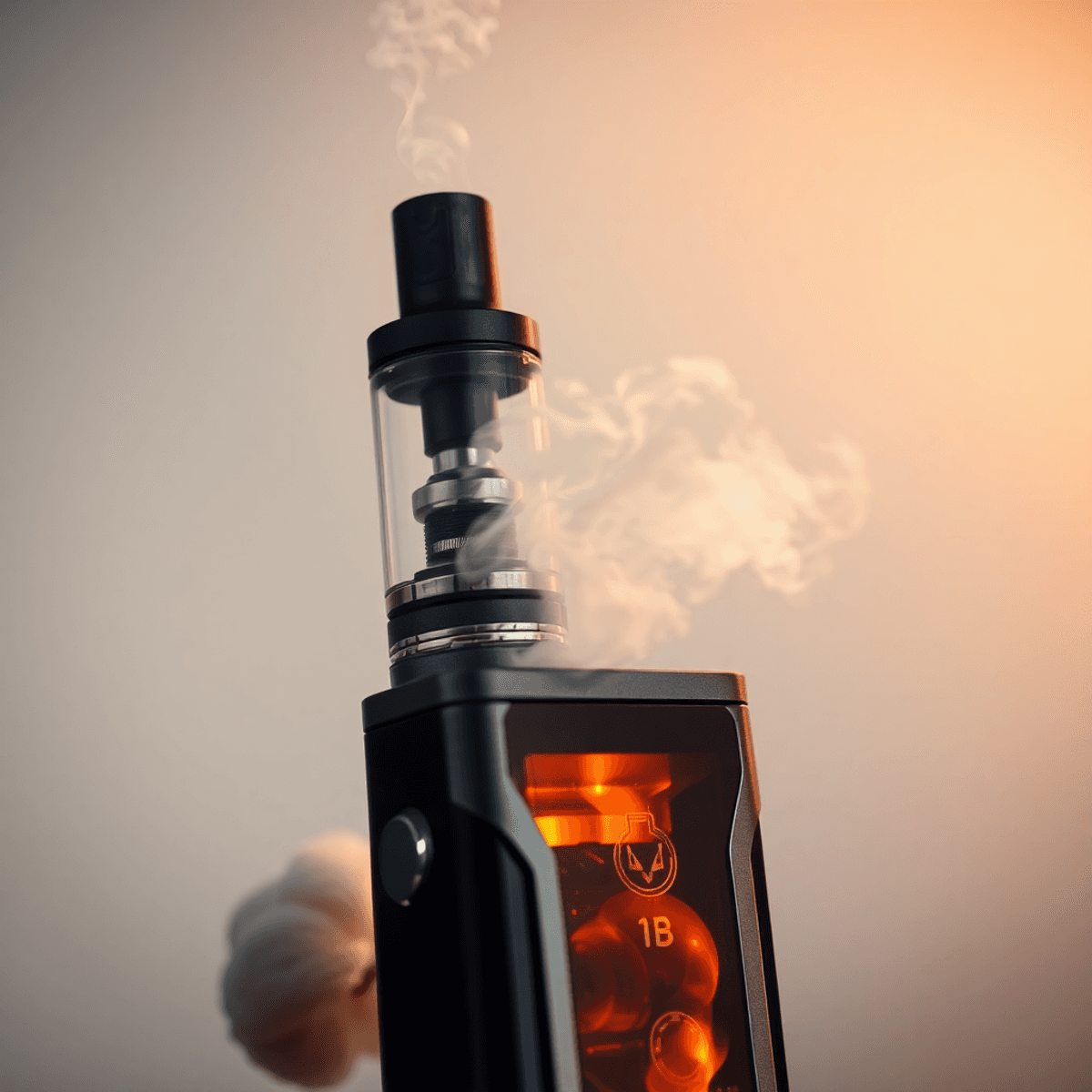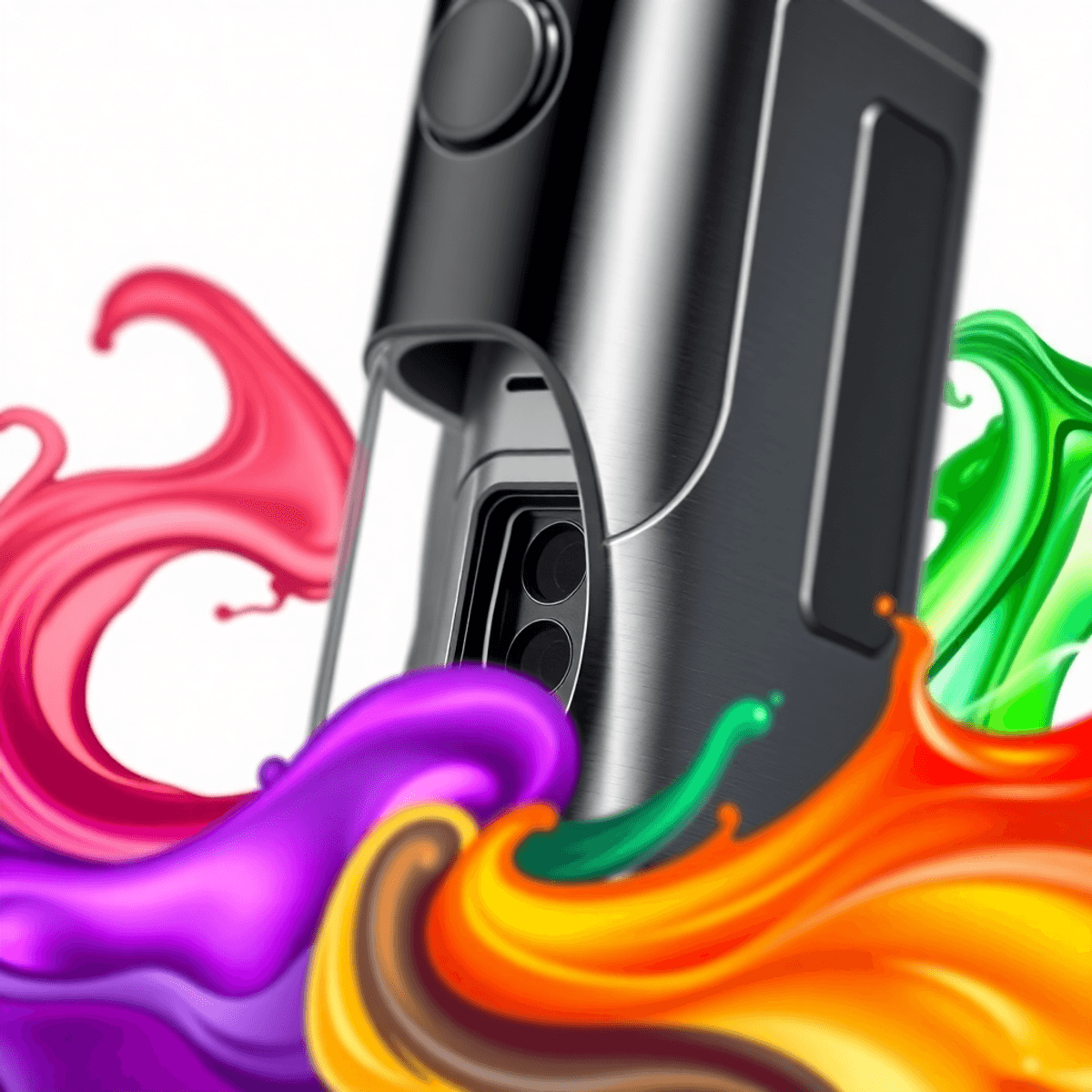The increasing popularity of vaping has raised concerns about its potential health effects, particularly regarding throat-related issues like tonsillitis. As both experienced vapers and newcomers seek clarity on this matter, it’s important to understand the possible link between these two elements.
This comprehensive guide explores the connection between vaping and tonsillitis, looking into:
- The fundamentals of tonsillitis and its common causes
- How vaping impacts throat health
- The effects of e-liquids on oral environments
- Key factors for vapers with tonsillitis to consider
Whether you’re a frequent vaper dealing with throat discomfort or simply curious about how vaping affects throat health, this article offers evidence-based insights to help you make informed decisions about your vaping habits.
We’ll examine expert opinions, scientific studies and practical tips to answer the question: can vaping trigger or worsen tonsillitis? Let’s uncover the truth by separating myths from facts.
Understanding the Link Between Vaping and Tonsillitis
To comprehend how vaping might potentially lead to tonsillitis, we need to examine its impact on throat health. The inhalation of hot vapour can irritate the throat, resulting in inflammation. This situation could be worsened by specific e-liquids, which may cause further irritation. While vaping itself may not directly cause tonsillitis, it can certainly contribute to conditions that may trigger or worsen this throat ailment.
Understanding Tonsillitis
Tonsillitis occurs when the tonsils – two oval-shaped pads of tissue at the back of the throat – become inflamed. These essential components of the immune system act as natural filters, trapping germs that could enter the body through the mouth or nose.
Common Causes of Tonsillitis:
- Bacterial Infections
- Streptococcal bacteria (particularly Group A Strep)
- Other bacterial strains affecting the throat
- Viral Infections
- Epstein-Barr virus (causing glandular fever)
- Common cold viruses
- Flu viruses
Key Symptoms to Watch For:
- Sore throat and difficulty swallowing
- Swollen, red tonsils with white or yellow patches
- High temperature and headache
- Tender lymph nodes in the neck
- Bad breath and altered taste
- Fatigue and general discomfort
The severity of tonsillitis can range from mild discomfort to significant pain that interferes with daily activities. While both viral and bacterial infections can cause similar symptoms, bacterial tonsillitis often presents with more severe symptoms and might require antibiotic treatment.
The condition typically resolves within 3-7 days with proper rest and care. Some people experience recurring episodes of tonsillitis, which might require medical evaluation to determine the underlying cause and appropriate treatment approach.
The Impact of Vaping on Throat Health
Vaping directly affects throat health through repeated exposure to heated vapour and its chemical components. This exposure can lead to several immediate and long-term effects on the throat’s delicate tissues:
Common Throat Reactions to Vaping:
- Persistent dry mouth
- Scratchy or raw sensation
- Inflamed throat tissue
- Increased mucus production
- Coughing episodes
The heat from e-cigarette vapour can cause localised inflammation in the throat, creating an environment where bacteria might thrive. This inflammation weakens the throat’s natural defence mechanisms, potentially making it more susceptible to infections, including tonsillitis.
Physical Effects of Vaping on Throat Tissue:
The repeated action of inhaling vapour can cause:
- Dehydration of mucous membranes
- Irritation of sensitive throat tissue
- Reduced effectiveness of protective throat cells
- Changes in local blood circulation
Research suggests that frequent vapers often experience a condition known as ‘vaper’s throat’ – a combination of soreness, inflammation and dryness that can persist for extended periods. These symptoms can intensify when using e-liquids with higher nicotine concentrations or certain flavour profiles.
The relationship between vaping and throat health becomes particularly significant when considering the proximity of the tonsils to the path of inhaled vapour. The direct contact between heated vapour and tonsil tissue might create conditions that make the tonsils more vulnerable to bacterial or viral infections.
Users who experience persistent throat irritation from vaping might benefit from adjusting their vaping habits, such as:
- Reducing vapour temperature
- Choosing lower nicotine concentrations
- Selecting less irritating flavour profiles
- Taking regular breaks between vaping sessions
Vaping and Oral Health: A Closer Look
Vaping creates distinct changes in the oral environment that can affect bacterial populations and potentially increase the risk of tonsillitis. Research indicates that e-cigarette vapour alters the natural balance of bacteria in the mouth, leading to:
- Reduced saliva production
- Changes in oral pH levels
- Disruption of beneficial bacterial colonies
- Creation of a more hospitable environment for harmful bacteria
The heat generated from vaping devices can cause dehydration of oral tissues, making them more susceptible to bacterial colonisation. This combination of factors creates conditions where bacteria linked to tonsillitis might thrive.
Sharing Vaping Devices: Hidden Risks
The practice of sharing vaping devices presents additional concerns for oral health:
- Direct transfer of bacteria between users
- Cross-contamination of different bacterial strains
- Exposure to potential pathogens from mouthpiece contact
- Risk of spreading infections, including streptococcal bacteria
Studies suggest that vaping devices can harbour significant bacterial populations on their surfaces, particularly around the mouthpiece and tank areas. These bacteria can survive for extended periods, creating a reservoir for potential infections.
The relationship between vaping and oral bacterial growth becomes particularly significant when considering tonsil health. The tonsils act as natural barriers against infection, but altered oral conditions from vaping might compromise their protective function. Users who experience frequent tonsillitis might need to examine their vaping habits, particularly regarding device hygiene and sharing practices.
Additionally, the type of e-liquid used can also play a role in these health issues. For instance, indulging in sweet flavours could potentially exacerbate the situation due to their high sugar content. On the other hand, opting for something like 20mg Just Nic It Nic Salt On Ice, which offers a smoother experience with less sugar, might be a better choice for maintaining oral health while vaping.
E-Liquids and Their Ingredients: What You Need to Know
E-liquids contain several key ingredients that directly impact throat health, with propylene glycol (PG) playing a significant role. PG creates the distinctive ‘throat hit’ sensation many vapers seek, yet this same characteristic can affect throat sensitivity.
Properties of Propylene Glycol
- Acts as a carrier for flavourings and nicotine
- Creates vapour when heated
- Produces a stronger throat sensation compared to vegetable glycerine
- Known to cause mild dehydration in throat tissues
The concentration of PG in e-liquids ranges from 30% to 100%. Higher PG ratios might increase throat irritation, particularly in users with existing sensitivities. Selecting e-liquids with lower PG content can help minimise potential throat discomfort. For example, this 50VG/50PG e-liquid or this flavourless nicotine shot could be more suitable options.
Antimicrobial Properties
Research suggests propylene glycol exhibits antimicrobial properties:
- Helps prevent bacterial growth in e-liquid solutions
- Creates an inhospitable environment for certain microorganisms
- Potentially reduces risks of bacterial contamination in vaping devices
These antimicrobial characteristics, while beneficial for product preservation, do not guarantee protection against throat infections. The heating process during vaping might alter these properties.
Additional E-liquid Components
Other than propylene glycol, e-liquids contain various components that also influence throat health:
- Vegetable glycerine (VG)
- Flavouring compounds
- Nicotine (optional)
- Water
- Food-grade additives
Each ingredient carries its own impact on throat health. Understanding these components helps vapers make informed choices about their e-liquid selection, particularly when managing throat sensitivities or existing health conditions.
Medical Advice on Vaping with Tonsillitis: What You Should Consider
Medical professionals strongly advise against vaping during active tonsillitis episodes. The heat and chemicals from vaping can:
- Delay healing processes
- Increase throat inflammation
- Worsen existing symptoms
- Potentially lead to complications
Rest and Recovery Guidelines
Healthcare providers recommend a complete pause in vaping for at least 7-10 days after tonsillitis diagnosis. This break allows the throat tissues to heal properly and reduces the risk of prolonged illness.
Post-Recovery Considerations
When returning to vaping after full recovery, consider these medical recommendations:
- Start with reduced nicotine strength
- Choose mild e-liquid flavours
- Maintain proper hydration levels
- Monitor throat response
Gentler E-liquid Options
Some flavour profiles are known to cause less throat irritation:
- Unflavoured base liquids
- Light fruit blends
- Vanilla-based varieties
- Mild dessert flavours
Essential Precautions
Medical experts emphasise the importance of:
- Regular device cleaning
- Using fresh coils
- Maintaining proper power settings
- Taking shorter draws
Hydration Requirements
Proper hydration plays a crucial role in throat health during and after tonsillitis. Medical professionals recommend:
- Drinking 2-3 litres of water daily
- Avoiding caffeine and alcohol
- Using throat-soothing herbal teas
- Maintaining humidity levels in living spaces
These medical guidelines help minimise potential complications while supporting proper healing of throat tissues. In addition to these, it’s also beneficial to incorporate some effective cold remedies into your recovery plan for overall better health.
Conclusion
The link between vaping and tonsillitis presents a complex health consideration for e-cigarette users. Research suggests that occasional vaping can lead to throat irritation, creating an environment where tonsillitis might develop more easily. The combination of potential bacterial growth, device sharing risks and throat sensitivity makes it crucial to approach vaping with caution.
For those asking ‘can vaping cause tonsillitis?‘, the evidence points to vaping as a possible contributing factor rather than a direct cause. The irritation and inflammation from vaping can weaken throat defences, making users more susceptible to infections.
Your health should always take precedence. If you experience recurring tonsillitis or persistent throat irritation, consider:
- Taking a break from vaping
- Switching to gentler e-liquid flavours
- Maintaining strict device hygiene
- Consulting a healthcare professional
Remember – your throat health impacts your daily comfort and well-being. Making informed choices about vaping habits today can prevent potential complications tomorrow.
FAQs
Can vaping cause tonsillitis?
Vaping can irritate the throat and potentially contribute to the development of tonsillitis by promoting inflammation and creating an environment conducive to bacterial growth.
What are the common causes and symptoms of tonsillitis?
Tonsillitis is primarily caused by bacterial and viral infections leading to inflammation of the tonsils. Common symptoms include sore throat, difficulty swallowing, swollen tonsils and fever.
How does vaping impact throat health?
Vaping can cause throat irritation, dryness and inflammation, which may weaken the throat’s defences and increase susceptibility to infections like tonsillitis.
In what ways does vaping affect oral health related to tonsillitis?
Vaping alters the oral environment by promoting bacterial growth and increasing the risk of infection. Sharing vaping devices can also spread bacteria, further impacting oral health.
What role do e-liquid ingredients like propylene glycol play in throat health?
Propylene glycol in e-liquids has antimicrobial properties but may also cause throat irritation. Understanding these effects is important for assessing vaping’s impact on throat health.
What medical advice is recommended for vaping during or after tonsillitis?
Medical recommendations suggest staying hydrated and avoiding harsh or strong e-liquid flavours during tonsillitis episodes. Mild flavours may be less irritating post-recovery, but prioritizing throat health over vaping is essential.



